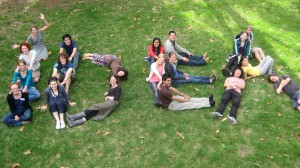Third Year Medicine (Graduate)
University of Notre Dame (Fremantle)
Catriona Soutar
Third Year Medicine (Graduate)
University of Sydney
Imogen Hamel-Green
Third Year Medicine (Graduate)
University of Melbourne
Sophie Gascoigne-Cohen
Fourth Year Medicine (Graduate)
University of Melbourne
James Correy
Third Year Medicine (Undergraduate)
University of Tasmania
Catriona completed a Bachelor of Arts/Bachelor of Science at the University of New South Wales prior to starting Medicine. In 2009 Catriona was the NSW student representative for the DEA students and she continues this role in 2010.
Imogen is a past student union environment officer at the University of Melbourne. In 2009 she was involved in starting the University of Melbourne Green Health Group, as well as being a convener of iDEA, a Victorian State Representative for DEA students and an Australian Youth Climate Coalition (AYCC) representative. She is currently the National Project Officer for DEA students.
Sophie completed a Bachelor of Arts (Languages) at the University of Sydney prior to starting Medicine. In 2009 she helped start the University of Melbourne Green Health Group, was a State Representative for DEA students and one of the conveners of iDEA. This year Sophie is the DEA International and NGO Liaison Officer for DEA students.
James is an active member of local grassroots climate action groups in Hobart and has been influential in establishing an eco-health discussion and social group amongst medical students at his university. This year he is one of the two Publications Officers for DEA students.

